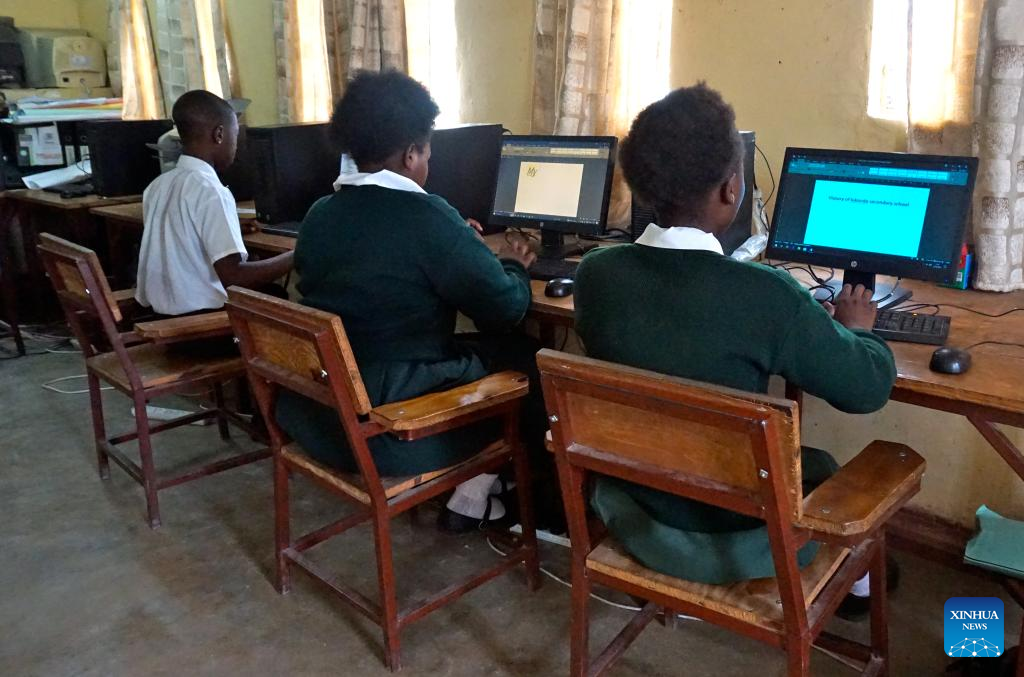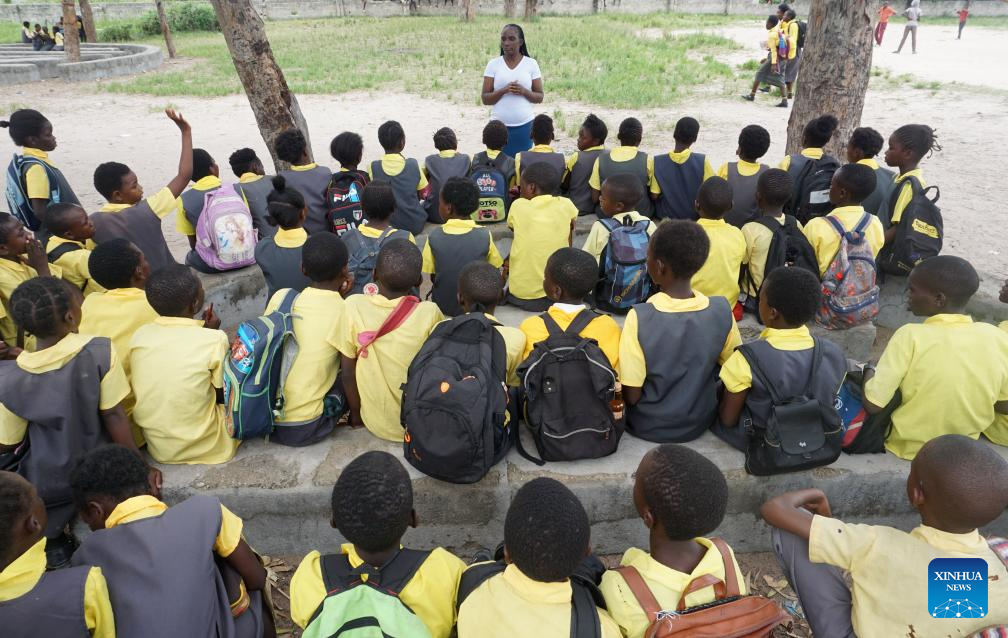
Students are seen at a computer lab in the Lukanda Secondary School in Kapiri Mposhi, central Zambia, March 15, 2024. (Photo by Lillian Banda/Xinhua)
LUSAKA, March 27 (Xinhua) -- In a world where technology is playing an increasingly important role in education, the introduction of technology studies in primary and secondary schools in Zambia has been a game-changer for young learners.
Since computers were incorporated into the primary and secondary school education system about a decade ago, children in Zambia have been able to access a wealth of resources and opportunities that were previously unavailable to them, enhancing their learning experience in numerous ways.
In Kapiri Mposhi, a town in central Zambia, students have benefited greatly from the introduction of computers into their classrooms. The availability of these technological resources has opened up a world of possibilities for these young learners, allowing them to engage with educational content in new and exciting ways.
"Access to computers has enabled me to understand different subjects better. I can do research for my various school projects, learn more and understand things better," said 15-year-old Hazel Kasolo, a student at Lukanda Secondary School.
Interactions with learners at Matilyo Primary School revealed that technology studies in general, and access to computers in particular, help children find learning more interactive, engaging and interesting.
"Things like animals and trees look better on a computer than on ordinary blackboards and charts," said Given Chanda, 11, a student at Matilyo Primary School.
Hellen Kasanda, a technology teacher at Matilyo Primary School, agreed that the introduction of computers has improved the learning experience for students.
"I have seen firsthand how students' confidence and engagement have grown as they learn to use computers for various school tasks," she said.
Principals at both Lukanda Secondary School and Matilyo Primary School have also observed the positive impact that access to computers has had on their students' educational experience.
"At Lukanda Secondary School, we have noticed a significant improvement in students' understanding of various subjects since the introduction of computers. They are able to explore concepts in ways that were not possible before, and this has contributed to a more dynamic and engaging learning environment," said Edward Kunda, head teacher at Lukanda Secondary School.
Similarly, Chinzila Mudenda, head teacher at Matilyo Primary School, noted that students are more motivated to engage in their studies when they can use computers as part of their learning process.
"The integration of computers has definitely had a positive impact on their academic performance and overall interest in learning," said Mudenda.
She further said as technology continues to play an increasingly significant role in the modern world, more support is needed to ensure that schools have enough computers for students to access. "The biggest challenge we have as a school is the very limited number of computers. Sometimes more than 10 students share one computer during computer classes."
Mudenda's concerns were echoed by her counterpart at Lukanda Secondary School, who added that lack of access to computers has the potential to prevent learners from acquiring future skills.
According to statistics from Zambia's National ICT Policy 2023, only 39.4 percent of the country's schools had computers, and 5.9 percent had access to the Internet as of 2020. ■

A teacher and students from Matilyo Primary School participate in an outdoor activity in Kapiri Mposhi, central Zambia, March 15, 2024. (Photo by Lillian Banda/Xinhua)
